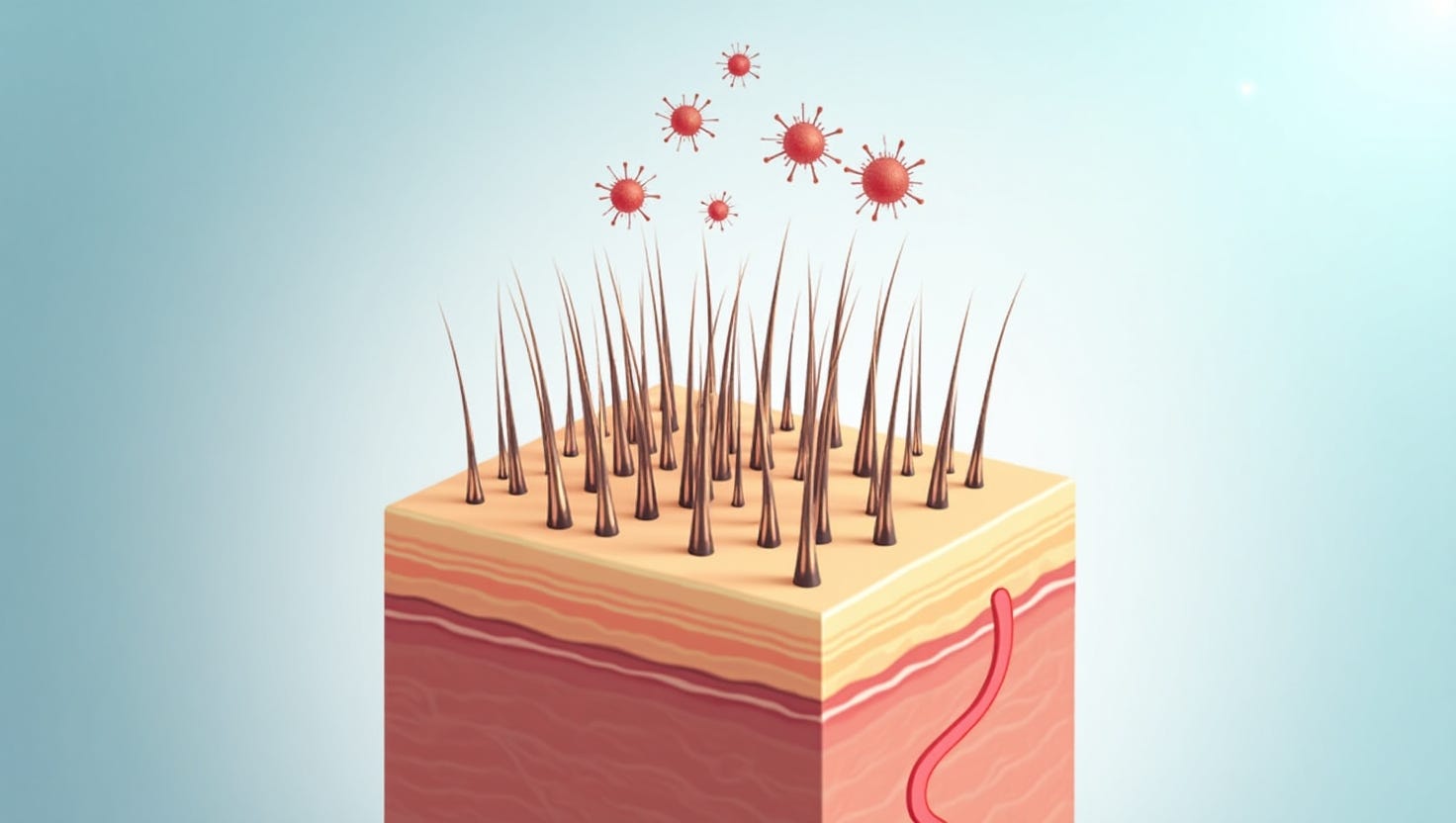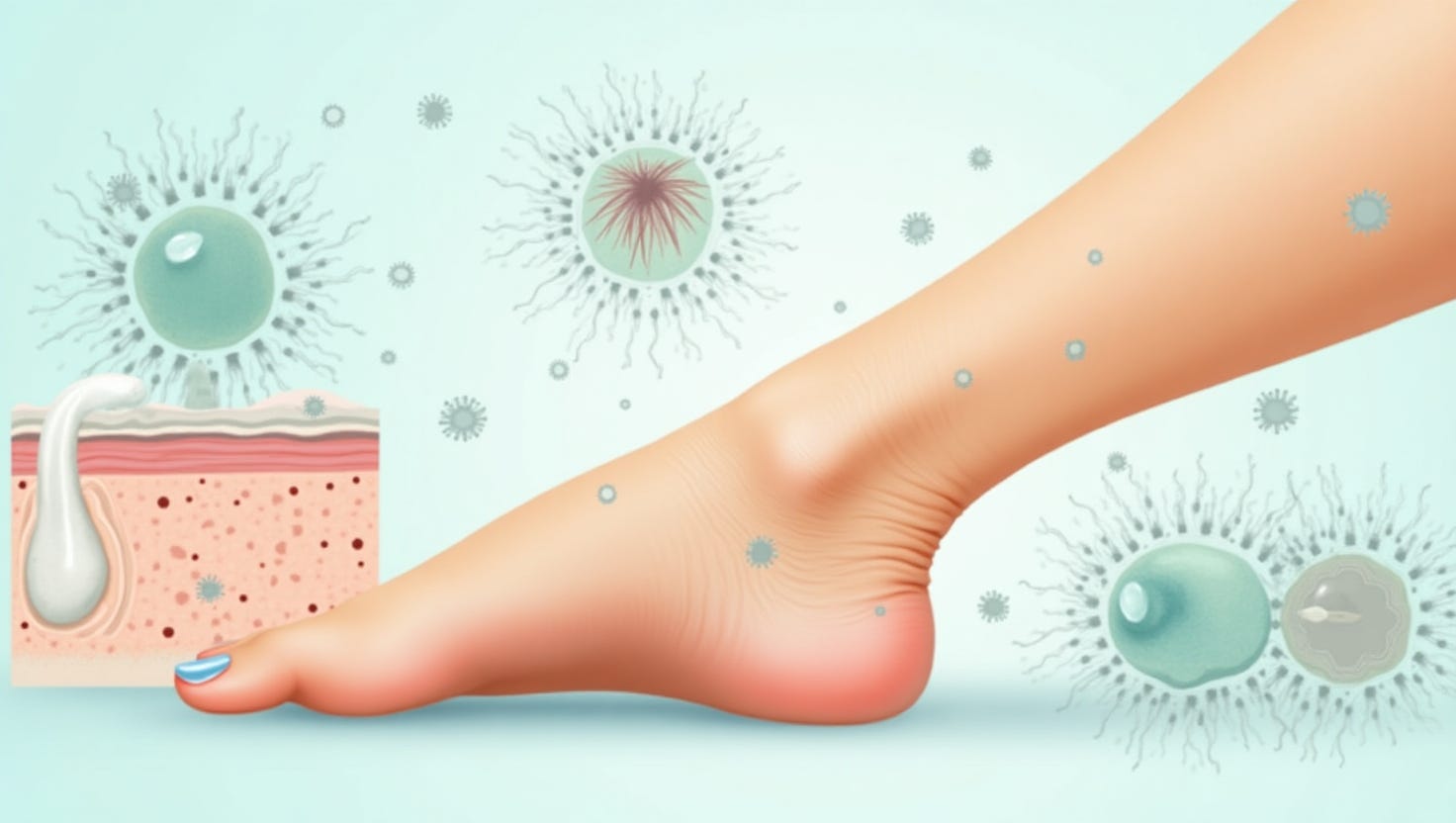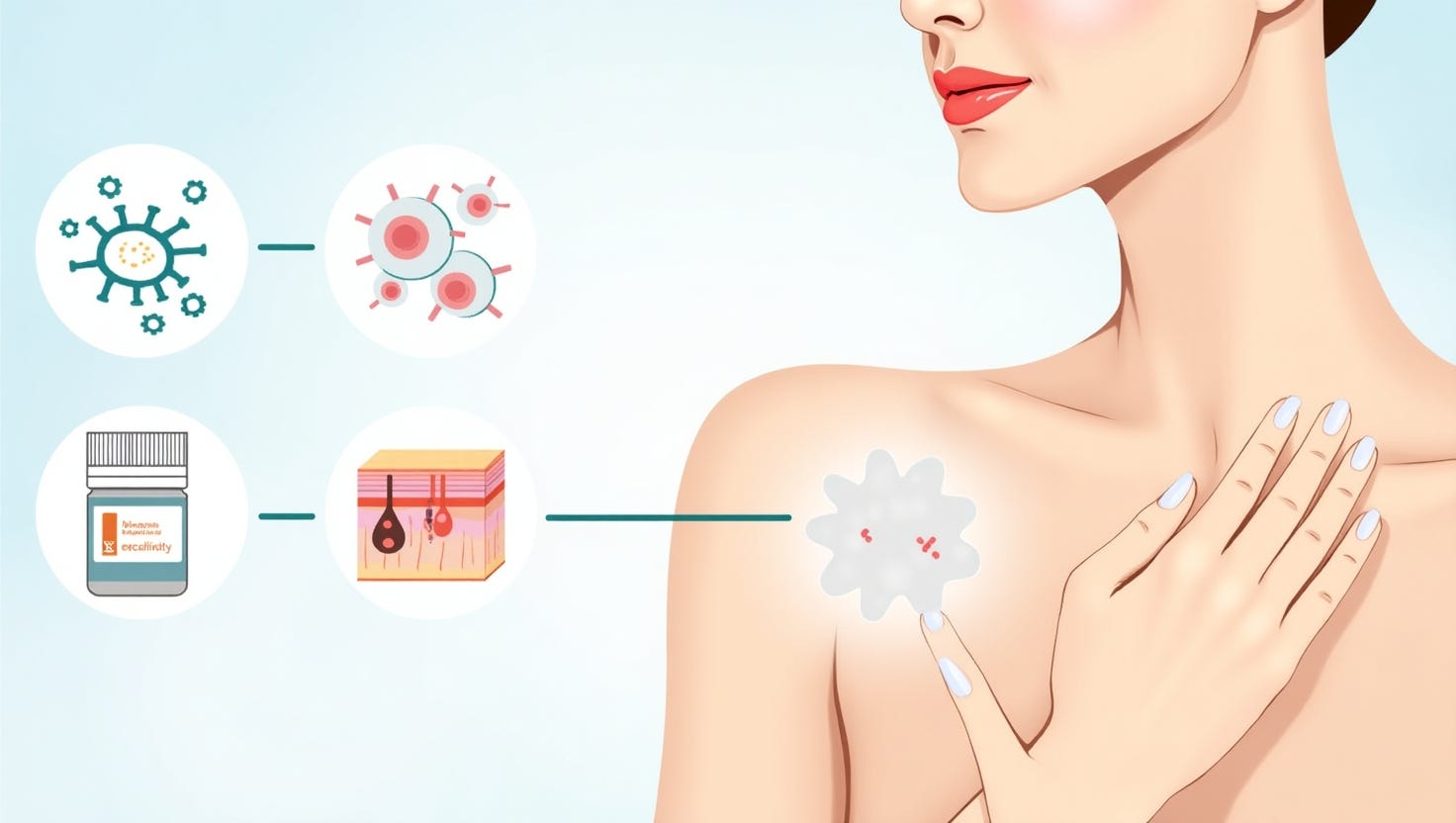White spots on the skin: Possible causes and treatments

Table of Contents
- Cause of White Spots on Face
- Symptoms of White Spots on Face
- Treatment Options for White Spots on Face
- When to Consult a Doctor
Cause of White Spots on Face
White spots on the face can have various causes. Let us have a look at some of them.
- Sun Exposure: Prolonged exposure to sunlight can lead to the development of sunspots or tinea versicolor, causing white patches on the skin.
- Fungal Infections: Fungal infections, particularly tinea versicolor, can manifest as white or light-coloured spots on the face.
- Vitiligo: A skin condition where melanocytes are destroyed, resulting in the loss of pigment and the appearance of white patches.
- Pityriasis Alba: A common skin condition that primarily affects children, causing pale or white patches on the face.
- Idiopathic Guttate Hypomelanosis (IGH): Small, white, flat spots that commonly appear on sun-exposed areas of the skin, including the face.
Symptoms of White Spots on Face
White spots on the face manifest through various symptoms. The primary indicator is the presence of light-coloured patches on the skin, often with a noticeable loss of pigmentation. Itching or irritation may occur, especially in cases associated with fungal infections.
- Light-Coloured Patches: White or light-coloured patches on the skin, varying in size and shape.
- Loss of Pigmentation: Depigmentation in affected areas leads to a noticeable contrast with the surrounding skin.
- Itching or Irritation: Some individuals may experience itching or irritation in the areas with white spots, especially in cases of fungal infections.
- Gradual Spread: The spots may gradually spread over time, particularly in conditions like vitiligo.
- Scaling or Flaking: Fungal infections may cause scaling or flaking of the skin in addition to the appearance of white patches.
Treatment Options for White Spots on Face
- Topical Antifungal Medications: Topical antifungal creams or lotions may be prescribed for white spots caused by fungal infections like tinea versicolor.
- Corticosteroid Creams: To reduce inflammation and promote repigmentation, corticosteroid creams may be recommended for certain conditions, including vitiligo.
- Topical Calcineurin Inhibitors: Immunomodulating medications like tacrolimus or pimecrolimus may treat vitiligo, helping restore pigment.
- Phototherapy: Exposure to ultraviolet (UV) light through narrowband UVB or PUVA therapy can stimulate repigmentation in some cases of vitiligo.
- Microskin or Dermablend: Camouflage makeup products like Microskin or Dermablend can help conceal white spots, providing a cosmetic solution.
- Pigment Transplantation: In some instances of vitiligo, pigment transplantation techniques like punch grafting or melanocyte transplantation may be considered.
- Laser Therapy: Laser treatments, such as excimer laser, can target depigmented areas and stimulate melanocyte activity for repigmentation.
When to Consult a Doctor?
It is advisable to consult a doctor if you notice white spots on your face for several reasons:
- Sudden Onset: If white spots appear suddenly without an apparent cause, seeking medical advice is crucial to determine the underlying issue.
- Changes in Size or Number: If the white spots change in size, shape, or increase in number, a medical evaluation is necessary to identify potential causes.
- Associated Symptoms: If the white spots are accompanied by itching, irritation, pain, or discomfort, consulting a doctor is essential for proper diagnosis and treatment.
- Uncertain Diagnosis: If the cause of the white spots is uncertain or over-the-counter treatments prove ineffective, a doctor's expertise can help in accurate diagnosis and tailored treatment.
- Concerns About Vitiligo: If there are concerns about vitiligo due to a family history or if the white spots resemble vitiligo symptoms, consulting a dermatologist for assessment and guidance is recommended.
- Persistent Conditions: If the white spots persist despite attempting home remedies or lifestyle changes, seeking professional medical advice ensures a thorough examination and appropriate intervention.
Our skilled dermatologists at Kaya know the particular issues surrounding white spots on the face. To solve these issues without requiring invasive procedures, we provide tailored solutions. Trust our knowledge to help you prioritise individualised care and achieve healthier, cleaner skin. Make an appointment to consult our experts if you see any white spots on your face. Our dermatologists will thoroughly evaluate and design a tailored treatment plan to address your needs.











